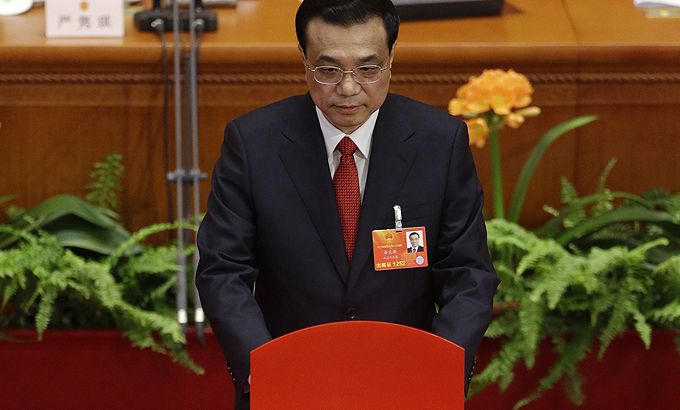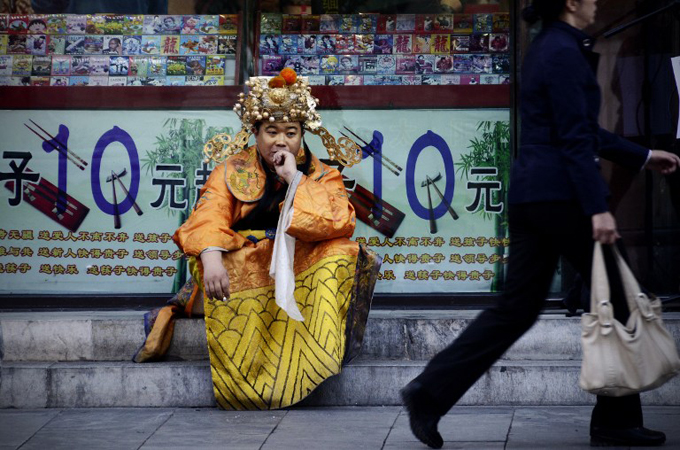Profile: Li Keqiang
From humble beginnings, China’s new prime minister has risen high in politics, but his career has faced controversy.

Li Keqiang, China’s new prime minister, has risen from relatively humble roots to take charge of running the government of the world’s second-largest economy, but could struggle to enforce his will.
A career bureaucrat who speaks fluent English, Li, 57, has voiced support for the kind of economic reforms many experts say China sorely needs for continued growth.
|
“The perception of him is he is not necessarily seen as the most effective policy-maker out there“ – Patrick Chovanec, analyst |
Like his predecessor Wen Jiabao, Li’s real power comes from his position as number two in China’s ruling Communist Party, where he is seen as having ties to a more populist faction associated with former President Hu Jintao.
But Li’s shortage of allies on the party’s top decision-making body, the Politburo Standing Committee, leaves him lacking “political heft”, said Patrick Chovanec, a China analyst and chief strategist at Silvercrest Asset Management in New York.
In order to exert influence, Li will need to secure the support of China’s new President Xi Jinping, who has more personal allies and ties to retired officials as the “princeling” son of one of China’s most famous generals, Chovanec added.
Li is expected to be in office for a decade, and will seek to wean the country towards more balanced development, with domestic consumption by a larger middle class playing a greater role.
He showed liberal tendencies in his youth, but has toed the party line for decades, and his reputation was damaged by his handling of an HIV/AIDS epidemic stemming from a tainted blood donation programme while party boss in Henan
province.
Local authorities responded with a clampdown on activists and the media rather than assigning responsibility to the officials involved, and at the national level a stream of health scandals have also occured on his watch.
‘Policy embarrassments’
“One concern with Li is that he has been dogged in the past with … not personal scandals, but policy embarrassments, particularly in Henan,” Chanovec said.
“The perception of him is he is not necessarily seen as the most effective policy-maker out there.”
Li, the son of a minor party official in eastern China’s poor Anhui province, was sent to the countryside to work as a manual labourer during China’s Cultural Revolution.
He went on to gain a law degree from Peking University, where classmates say he embraced Western and liberal political theory, translating a book on the law by a British judge.
But he has been more orthodox since joining the ranks of officialdom in the mid-80s, working as a bureaucrat while his former classmates protested in Tiananmen Square in 1989.
“Li Keqiang has seriously disappointed the democrats and liberal intellectuals who knew him at Peking University in the 1980s,” said Jean-Philippe Beja, of France’s National Centre for Scientific Research.
Li rose to become the party’s top official in Henan, and Liaoning province in the northeast, both of which saw economic growth, before he was promoted to become a deputy to Wen.
As one of China’s key decision-makers on the economy, Li has been praised for helping to steer the country through the global financial crisis relatively unscathed.
One of his top priorities will be to maintain China’s rapid economic growth, which is currently export-led and under pressure because of weakened demand for manufactured goods in Europe and the US.
Since becoming the Communist Party’s number-two last year, Li’s biggest move has been a government restructuring announced last week, which saw the abolition of China’s powerful and often corrupt railways ministry.
‘Cosmetic changes’
Public anger over wealth gained through fraud is a key concern for China’s authorities, who are anxious to avoid social unrest.
But analysts say the scale of the restructuring achieved so far point to Li’s challenges ahead.
 |
| Public anger over wealth gained through fraud remains a key concern for China’s authorities [AFP] |
“We have seen minimal cosmetic changes, he was not able to pull off a major restructuring,” said Willy Lam from the Chinese University of Hong Kong.
Some fear parallels between Li and Wen, who struggled to force through policies as he battled with factions in the upper reaches of the party, and officialdom in the provinces and ministries.
Wen cultivated an image as the liberal face of the Communist Party, a standard bearer for the poor who voiced qualified support for political reform.
But such changes stagnated under his watch, while China’s wealth gap grew.
The party has long held the view that it must maintain control over politics, while promoting economic growth as the key to solving China’s problems.
There was “no indication” that Li or Xi “are any different from the current leaders in this respect.” said Barry Sautman, associate professor of social science at the Hong Kong University of Science and Technology.
“There is nothing they have done in the past to suggest they might do something different from what has been done over the course of the last 30 years or so.”